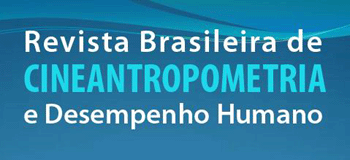Over the last 30 years there has been a considerable increase of research in the field of motor development. Although the first reports were based on biological factors, current discussions include the role of the environment in the process of motor development. The aim of this study was to compare the motor performance of children enrolled in sports centers to that of children only attending physical education classes. Eighty-seven children aged 8 to 10 years enrolled in centers offering training in rhythmic gymnastics (n=20), handball (n=26) and indoor soccer (n=16) and children attending only physical education classes (n=25) participated in the study. Data were analyzed by inferential statistics using the Kruskal-Wallis test, Mann-Whitney U test and discriminant analysis, adopting a level of significance of α=0.05. The results showed differences between groups (p<0.001). Children attending only physical education classes showed lower performance, whereas children enrolled in sports centers performed better in the motor skills related to the requirements of each discipline. The statistical model also discriminated and classified correctly 79.3% of the children participating or not in some sports discipline. Finally, it is possible to conclude that the sport context influences the level of motor performance and motor skills according to the requirements of the sport practiced.
Child; Motor development; Motor skills

